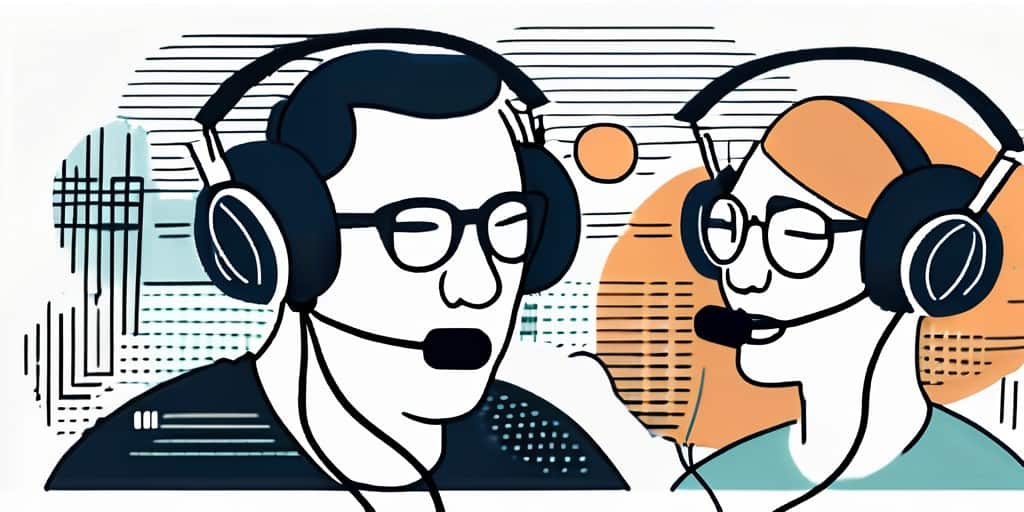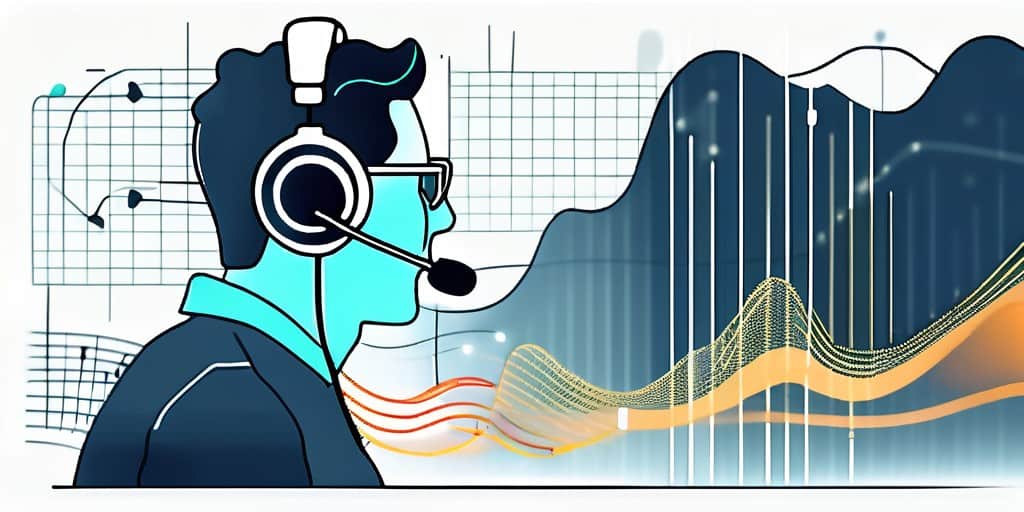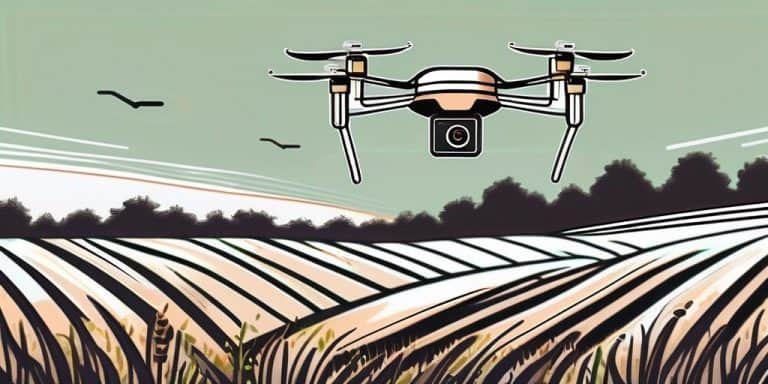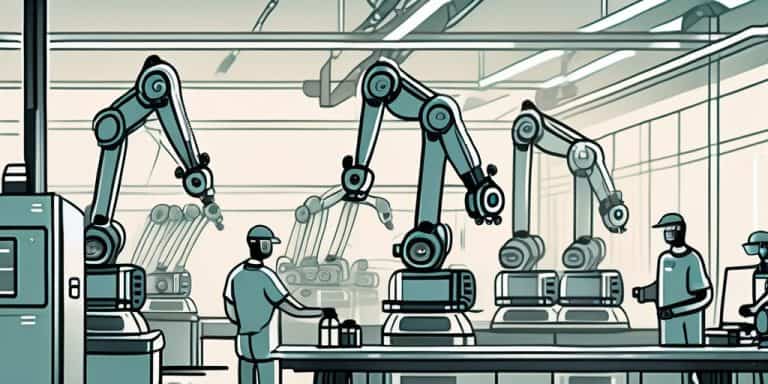
Examples of Speech Synthesis in the Legal System
Discover how speech synthesis technology is revolutionizing the legal system with real-world examples.

In today’s fast-paced digital world, businesses are constantly seeking innovative ways to enhance customer service. One particularly promising technology that has gained traction in recent years is speech synthesis. By leveraging the power of artificial intelligence (AI), businesses can now utilize speech synthesis to deliver personalized and efficient customer service experiences. In this article, we will explore the various aspects of speech synthesis in customer service and shed light on its impact, applications, and the future it holds.
Speech synthesis, also known as text-to-speech (TTS) technology, is the process of converting written text into spoken words. It involves a complex algorithm that generates human-like speech patterns using a vast database of recorded voices. By analyzing the text, the synthesis engine accurately reproduces the nuances of natural speech, allowing for a more engaging customer service experience.
Speech synthesis has come a long way since its inception. Initially, the synthesized speech sounded robotic and lacked the natural flow and intonation of human speech. However, advancements in technology, particularly in the field of artificial intelligence (AI), have revolutionized speech synthesis, making it almost indistinguishable from human speech.
The Role of AI in Speech Synthesis
Artificial intelligence plays a crucial role in speech synthesis technology. AI algorithms enable the system to understand the context and meaning of the written text, ensuring that the synthesized speech is personalized and tailored to the specific needs of the customer. By leveraging AI, businesses can deliver a more natural and human-like conversational experience, significantly improving customer satisfaction.
AI algorithms analyze various linguistic features, such as grammar, syntax, and semantics, to generate speech that sounds authentic and coherent. They take into account factors like punctuation, emphasis, and intonation, allowing the synthesized speech to convey emotions and intentions effectively. This level of sophistication in speech synthesis has opened up new possibilities for applications in various industries.
One of the key advantages of AI-powered speech synthesis is its ability to adapt to different languages and accents. The algorithms can be trained on multilingual datasets, enabling the system to generate speech in multiple languages with high accuracy. This feature is particularly beneficial for businesses operating in global markets, as it allows them to provide localized customer support and services.
Moreover, AI-powered speech synthesis has proven to be a valuable tool in accessibility and inclusion. Individuals with visual impairments or reading difficulties can benefit greatly from TTS technology, as it allows them to access written content through audio. This empowers them to navigate websites, read books, and engage with digital content more independently.
As AI continues to advance, speech synthesis technology is expected to become even more sophisticated. Researchers are exploring new techniques, such as deep learning and neural networks, to further enhance the naturalness and expressiveness of synthesized speech. This ongoing development holds great promise for applications in areas like virtual assistants, voice-enabled devices, and interactive storytelling.
Speech synthesis technology has revolutionized customer experience by providing alternative communication channels that are more efficient and accessible. With speech synthesis, businesses can offer customers the convenience of interacting with automated systems, reducing wait times, and providing 24/7 support. Additionally, by incorporating personalized greetings and assistance, speech synthesis creates a more personalized and engaging experience for customers, ultimately leading to higher levels of customer satisfaction.

Imagine a scenario where a customer needs assistance outside of regular business hours. In the past, they would have to wait until the next day to speak with a customer service representative. However, with speech synthesis, businesses can provide round-the-clock support, ensuring that customers can get the help they need at any time. This not only improves customer satisfaction but also enhances the reputation of the business as a reliable and customer-centric organization.
Furthermore, speech synthesis allows businesses to offer multilingual support without the need for hiring additional staff or outsourcing customer service operations. By leveraging speech synthesis technology, automated systems can communicate with customers in multiple languages, breaking down language barriers and ensuring that customers from diverse backgrounds can receive the same level of support and assistance.
Automated customer support systems powered by speech synthesis have proven to be highly efficient and cost-effective for businesses. These systems can handle a wide range of customer inquiries and concerns, assisting customers in finding information, placing orders, or resolving common issues. By automating these processes, businesses can minimize the need for human intervention, resulting in significant time and cost savings.
One of the key advantages of automated customer support systems is their ability to handle a large volume of inquiries simultaneously. Unlike human agents who can only handle one customer at a time, speech synthesis-powered systems can interact with multiple customers simultaneously, reducing wait times and ensuring prompt assistance. This not only improves the overall customer experience but also allows businesses to handle a higher volume of customer inquiries without the need for additional resources.
Moreover, automated customer support systems powered by speech synthesis are highly accurate and consistent in their responses. They are programmed to provide accurate and up-to-date information, ensuring that customers receive the correct answers to their queries. This eliminates the risk of human error and ensures that customers are provided with reliable and consistent support.
Additionally, speech synthesis allows businesses to collect valuable data and insights about customer preferences and behavior. By analyzing the interactions between customers and automated systems, businesses can gain insights into customer needs, pain points, and preferences. This data can then be used to improve products, services, and overall customer experience, ultimately driving business growth and success.
Speech synthesis technology has revolutionized the field of customer service, offering various applications that enhance the user experience and improve overall customer satisfaction. In this article, we will explore two key applications of speech synthesis in customer service: Interactive Voice Response (IVR) systems and virtual assistants/chatbots.

Interactive Voice Response (IVR) systems have long been used in customer service to provide automated menu options and help users navigate through various services. By incorporating speech synthesis, IVR systems can now deliver spoken responses in addition to touch-tone input, simplifying the user experience and reducing frustration.
Imagine calling your bank’s customer service hotline and being greeted by a friendly voice that guides you through the menu options. With speech synthesis, the IVR system can provide clear and concise instructions, making it easier for customers to access the information they need. Whether it’s checking account balances, transferring funds, or reporting a lost card, the IVR system can efficiently assist customers without the need for human intervention.
Moreover, speech synthesis in IVR systems enables a more personalized experience. By analyzing customer data and preferences, the system can tailor its responses to individual callers, addressing them by name and offering relevant suggestions or promotions. This level of personalization not only enhances customer satisfaction but also strengthens the brand-customer relationship.
Virtual assistants and chatbots are quickly becoming essential components of customer service strategies. These systems leverage speech synthesis to offer customers prompt and accurate responses to their queries. By simulating human-like conversation, virtual assistants and chatbots can engage in natural and personalized interactions with customers, leading to increased customer engagement, improved issue resolution, and enhanced overall customer satisfaction.
Imagine visiting an e-commerce website and encountering a virtual assistant that can assist you in finding the perfect product. With speech synthesis, the virtual assistant can engage in a conversation, asking questions about your preferences, budget, and desired features. Based on your responses, the assistant can provide tailored recommendations, complete with detailed descriptions and pricing information.
Moreover, virtual assistants and chatbots can handle multiple customer inquiries simultaneously, reducing wait times and improving efficiency. By leveraging speech synthesis, these systems can provide real-time responses, eliminating the need for customers to wait for a human agent to become available. This not only saves time but also ensures that customers receive the assistance they need when they need it.
Furthermore, speech synthesis allows virtual assistants and chatbots to adapt their tone and language to match the customer’s preferences. Whether the customer prefers a formal or casual conversation, the system can adjust its speech accordingly, creating a more personalized and comfortable interaction.
In conclusion, speech synthesis technology has revolutionized customer service by enabling interactive voice response systems and enhancing virtual assistants/chatbots. These applications not only simplify the user experience but also improve efficiency, personalization, and overall customer satisfaction. As technology continues to advance, we can expect even more innovative uses of speech synthesis in customer service, further transforming the way businesses interact with their customers.
The future of speech synthesis in customer service looks promising. As technology continues to evolve, we can expect significant advancements in speech synthesis algorithms, resulting in even more realistic and natural-sounding speech. Moreover, with the increasing use of AI and machine learning, speech synthesis systems will become better at understanding customer preferences and emotions, enabling businesses to deliver highly personalized and empathetic customer experiences.

While speech synthesis technology holds immense potential, it also presents unique challenges. Accents, regional dialects, and languages other than English can pose difficulties for speech synthesis systems, potentially leading to inaccuracies in pronunciation or capturing subtle linguistic nuances. However, ongoing research and development in this field are aimed at addressing these challenges, ensuring that speech synthesis technology becomes more inclusive and versatile for a global customer base.
In conclusion, speech synthesis technology has emerged as a powerful tool in enhancing customer service experiences. With its ability to deliver personalized and efficient interactions, businesses can better cater to the needs of their customers. Whether through IVR systems, virtual assistants, or chatbots, speech synthesis has the potential to transform customer service into a seamless and engaging process. As technology advances and the field of speech synthesis evolves, we can expect even more exciting applications and opportunities for businesses to enhance their customer service strategies.



Discover how speech synthesis technology is revolutionizing the legal system with real-world examples.

Explore how speech synthesis technology is revolutionizing the agricultural industry with real-world examples and applications.

Explore how speech synthesis technology is revolutionizing the manufacturing industry with real-world examples.
